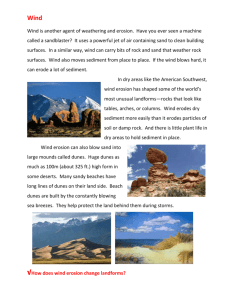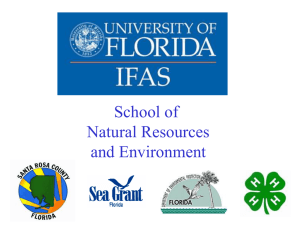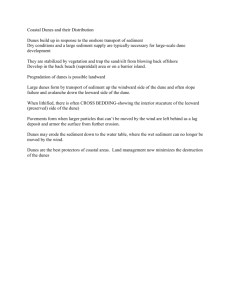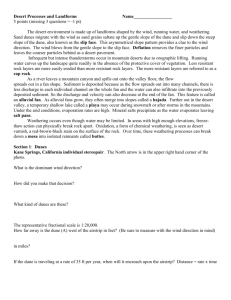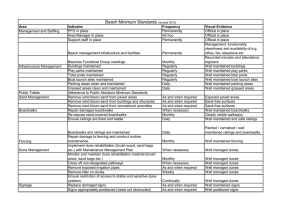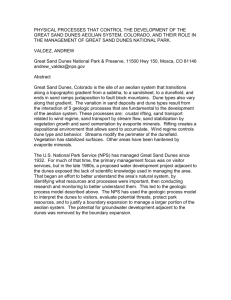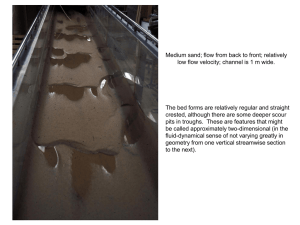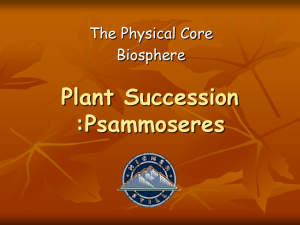Opportunities and Constraints for Enhancing Dunes on Developed
advertisement
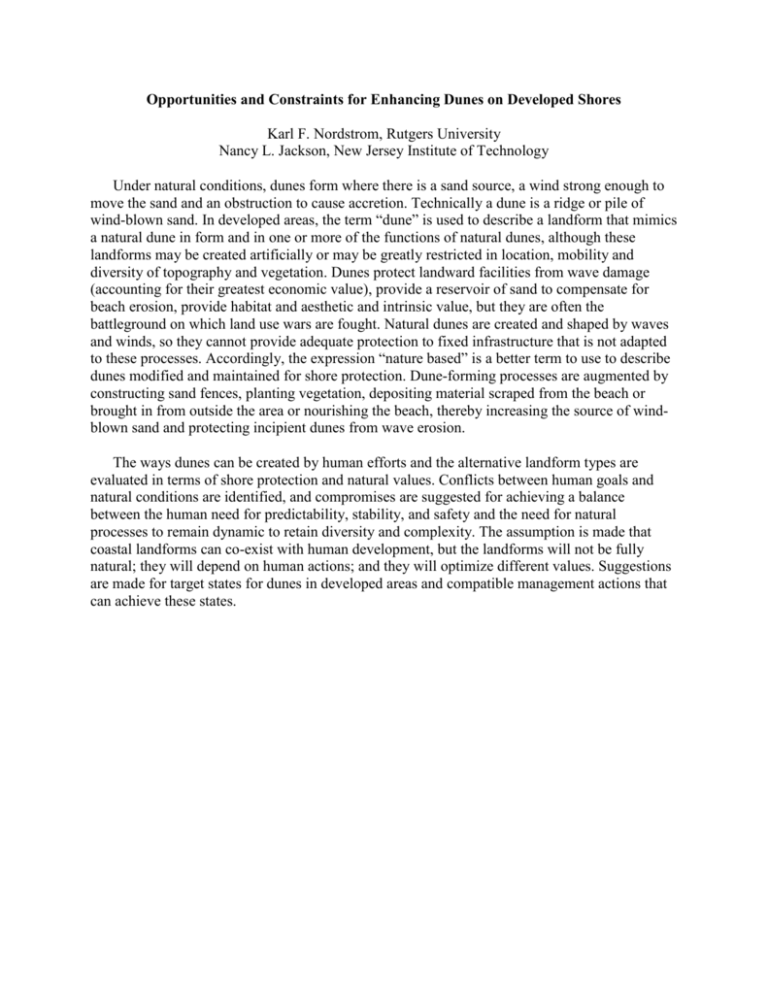
Opportunities and Constraints for Enhancing Dunes on Developed Shores Karl F. Nordstrom, Rutgers University Nancy L. Jackson, New Jersey Institute of Technology Under natural conditions, dunes form where there is a sand source, a wind strong enough to move the sand and an obstruction to cause accretion. Technically a dune is a ridge or pile of wind-blown sand. In developed areas, the term “dune” is used to describe a landform that mimics a natural dune in form and in one or more of the functions of natural dunes, although these landforms may be created artificially or may be greatly restricted in location, mobility and diversity of topography and vegetation. Dunes protect landward facilities from wave damage (accounting for their greatest economic value), provide a reservoir of sand to compensate for beach erosion, provide habitat and aesthetic and intrinsic value, but they are often the battleground on which land use wars are fought. Natural dunes are created and shaped by waves and winds, so they cannot provide adequate protection to fixed infrastructure that is not adapted to these processes. Accordingly, the expression “nature based” is a better term to use to describe dunes modified and maintained for shore protection. Dune-forming processes are augmented by constructing sand fences, planting vegetation, depositing material scraped from the beach or brought in from outside the area or nourishing the beach, thereby increasing the source of windblown sand and protecting incipient dunes from wave erosion. The ways dunes can be created by human efforts and the alternative landform types are evaluated in terms of shore protection and natural values. Conflicts between human goals and natural conditions are identified, and compromises are suggested for achieving a balance between the human need for predictability, stability, and safety and the need for natural processes to remain dynamic to retain diversity and complexity. The assumption is made that coastal landforms can co-exist with human development, but the landforms will not be fully natural; they will depend on human actions; and they will optimize different values. Suggestions are made for target states for dunes in developed areas and compatible management actions that can achieve these states.


